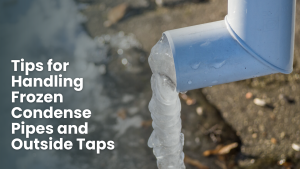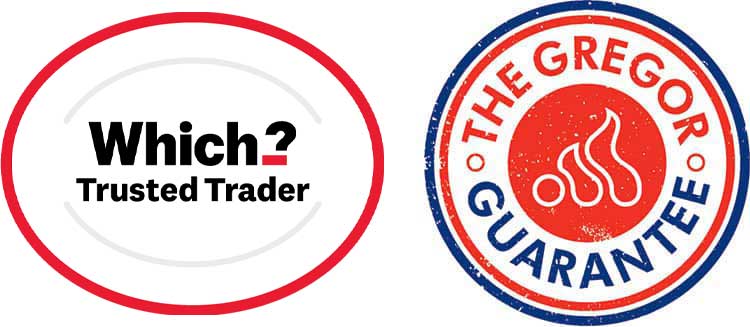
Winter can pose challenges for home owners, especially if you live in a property with exposed condense pipes and outside taps.
Here are some helpful tips from our engineers to help prevent and address issues related to frozen condense pipes and taps:
- Know where your mains stop tap is, so that you can block off water supply quickly in an emergency (typically under the kitchen sink).
- Regularly Check Outside Taps: Ensure that outside taps are turned off internally (generally under the kitchen sink) properly and drain any excess water from the outside tap. Disconnect and store garden hoses indoors during winter to prevent them from freezing and causing damage.
- Use Tap Covers: Invest in tap covers or wraps to insulate outside taps. These covers provide a protective barrier against the cold and can help prevent freezing. They are inexpensive and easy to install.
- Insulate Exposed Pipes: Ensure that any exposed pipes are properly insulated, pay particular attention to any pipes in lofts or that run outside your property. This can prevent them from freezing during cold spells.
- Keep the Heating On: Maintaining a consistent low indoor temperature, even when you’re away, can help prevent freezing issues. Keeping the heating system on a low setting can keep the entire property warm, including the pipes.
- Install Heat Tracing Cable: In areas prone to extreme cold, installing heat tracing cable along the condense pipes can help keep them warm. This cable provides a controlled amount of heat to prevent freezing, offering an extra layer of protection.
- Seal Gaps and Cracks: Inspect the exterior of your property for any gaps or cracks that might expose pipes to the cold. Seal these gaps with weatherproofing materials to prevent cold air from reaching the pipes.
- Clear your gutters and drains to prevent blockages, and check for leaks.
- Check any water storage tank and pipework in roof space are fully insulated.
- Seek Professional Advice: If you encounter persistent issues with frozen pipes or taps, consider seeking advice from a professional plumber or heating engineer such as ourselves.
By taking proactive measures and following these tips, you can minimize the risk of frozen condense pipes and outside taps in your home during the winter months.

